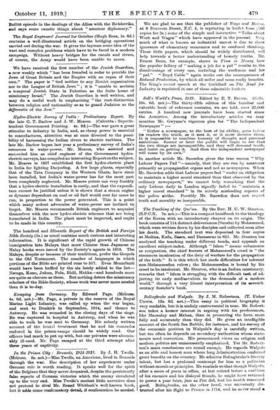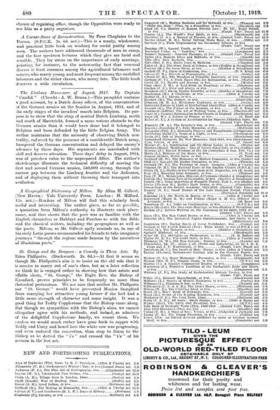Bolingbroke and Walpole. By J. M. Robertson. (T. Fisher Unwin.
12s. 6d. net.)—This essay in political biography is very readable, but Ms unduly controversial in tone. Mr. Robert. son takes a keener interest in arguing with his predecessors, like Macaulay and Mahon, than in presenting the facts more fully and accurately than they did. He gives an intelligible account of the South Sea Bubble, for instance, and his survey of the economic position in Walpole's day is carefully written, but too often he depends on secondary authorities whose state- ments need correction. His pronounced views on religion and modern politics are unnecessarily emphasized. Yet Mr. Robert- son's main conclusions are sound enough. He regards Walpole as an able and honest man whose long Administration conferred groat benefits on the country. Ho admires Bolingbroke's literary talent, but has a profound contempt for him as a politician without morals or principles. He reminds us that though Walpole, after a score of years in office, at last retired before a coalition of his enemies and his disloyal friends, he might have returned to power a year later, just as Pitt did, had his health remained good. Bolingbroke, on the other hand, was universally dis- trusted after his flight to France in 1714, and he never stood •
chance of regaining office, though the Opposition were ready to use hiin as a party organizer.



































 Previous page
Previous page